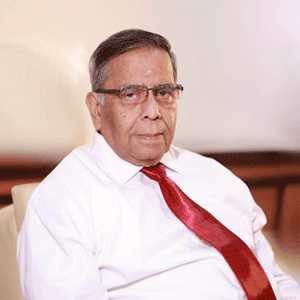
India’s paper sector is at a transformational stage with multiple forces acting together to change its course. Tightening environmental regulations, shifting customer preferences towards eco-friendly products, and compliance requirements are encouraging advancement. Emphasis on recycled fiber integration, reduction of plastic coating, and adoption of closed-loop water systems is rising. India is poised to emerge as a global hub for sustainable paper and packaging products.
Amidst the transitioning industry, Seshasayee Paper and Boards Limited (SPB) champions sustainable reform. Bringing decades of expertise in the Indian paper industry, SPB has carved a distinguished position marked by integrated operations, innovative products, and environmental stewardship. Renowned for embracing circular economy practices, the company exemplifies how modern technologies can be leveraged to achieve a sustainable future.
Integrated Operations, Niche Capabilities
SPB leverages its integrated framework, from pulp to paper to control raw material flows, cost structure, and flexibility, maintaining uninterrupted flow. Its niche product range featuring a variety of grades like MF, MG, coated, boards, colored papers render it a partner-of-choice across commoditized and value-add segments.
Its specialty grade products, including colored, coated, maplitho, boards differentiate the firm, over others. The company’s edge stems from its unique technical, process-control, and organizational measures that support quality consistency. Automation, real-time sensors, and control systems like PLCs, DCS, and more are implemented to detect deviations early, allowing automatic or tight manual interventions.
“SPB has a history of experimenting with mixing raw fibers of different types to find furnishes that yield stable and acceptable paper performance. Such trials help define tolerances and operating ‘recipes’ so that when raw fiber inputs change, the adjustment margins are known and controlled”, shares N. Gopalaratnam, Chairman, SPB.
Backed by research and experiments, equipped with global standard certifications including ISO 9001, 14001, 45001, 50001, and FSC certification, SPB’s Erode and Tirunelveli mills have established reliability. Its quality commitment and traceability enable access to premium export markets where SPB has achieved the status of ‘Golden Export House’ across 35 nations, which receive over 20 percent of the products manufactured.
Growing Robustly
Building on its legacy of excellence, the multi-award winning company has future-forward aspirations for the coming years. The company is implementing a mill development plan IV (MDP-IV) at an overall estimated CAPEX of ₹700 crore and the said project is planned in 2 phases to augment pulp capacity and boost paper capability. The company has planned a 20 percent expansion in pulp and paper manufacturing capacities in its Erode unit, under Phase-I. SPB had recently acquired the assets of M/s. Servalakshmi Paper Mill (Corporate Debtor under liquidation) under IBC, for which its plans include refurbishment and reviving capacity of ~ 75,000 MT of paper per annum.
N. Gopalaratnam further shares, “The Company’s ESG roadmap, Green initiatives and targets have been integrated with the Growth Strategy of the business. The Company has also recently collaborated with a Spanish company for setting up and commissioning of about 62 MW of Hybrid-Solar and Wind Power facilities, for exclusive use by SPB.
This facility, to be housed as a separate SPV, will have Equity Participation from our Company under Group Captive Model and this facility will have 9 MW of Wind Power Facilities and 52.8 MW of Solar PV facilities. This strategic tie-up to foster Energy from Renewable sources, along with the company’s proposed investment in Erode in project MDP-IV and in biofuel-based boilers in Tirunelveli unit, can ensure that more than 65 percent of energy needs of all the 3 units of the company be addressed by Green Sources”.
Beyond capacity expansion, SPB continues to emphasize sustainability/ESG integration with High share of renewable energy use, Wood-positive operations with distributing seedlings, planting contracts, farm/contract forestry and working to augment wood sourcing from nearby states and Integration of ESG goals into growth strategy.
We use cookies to ensure you get the best experience on our website. Read more...